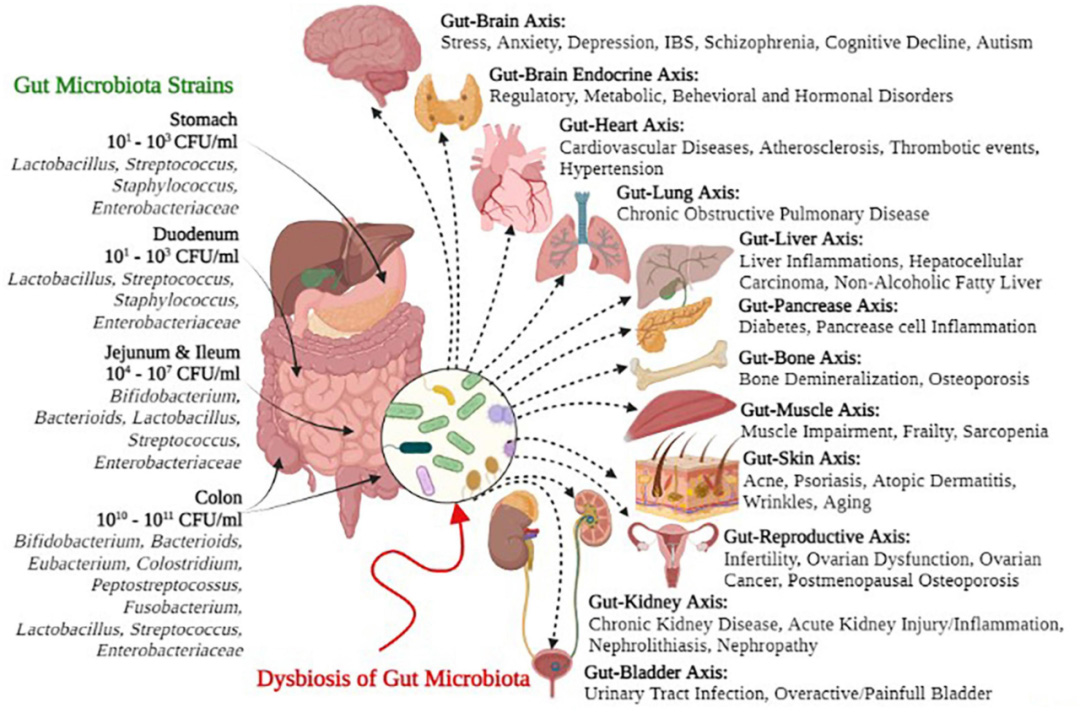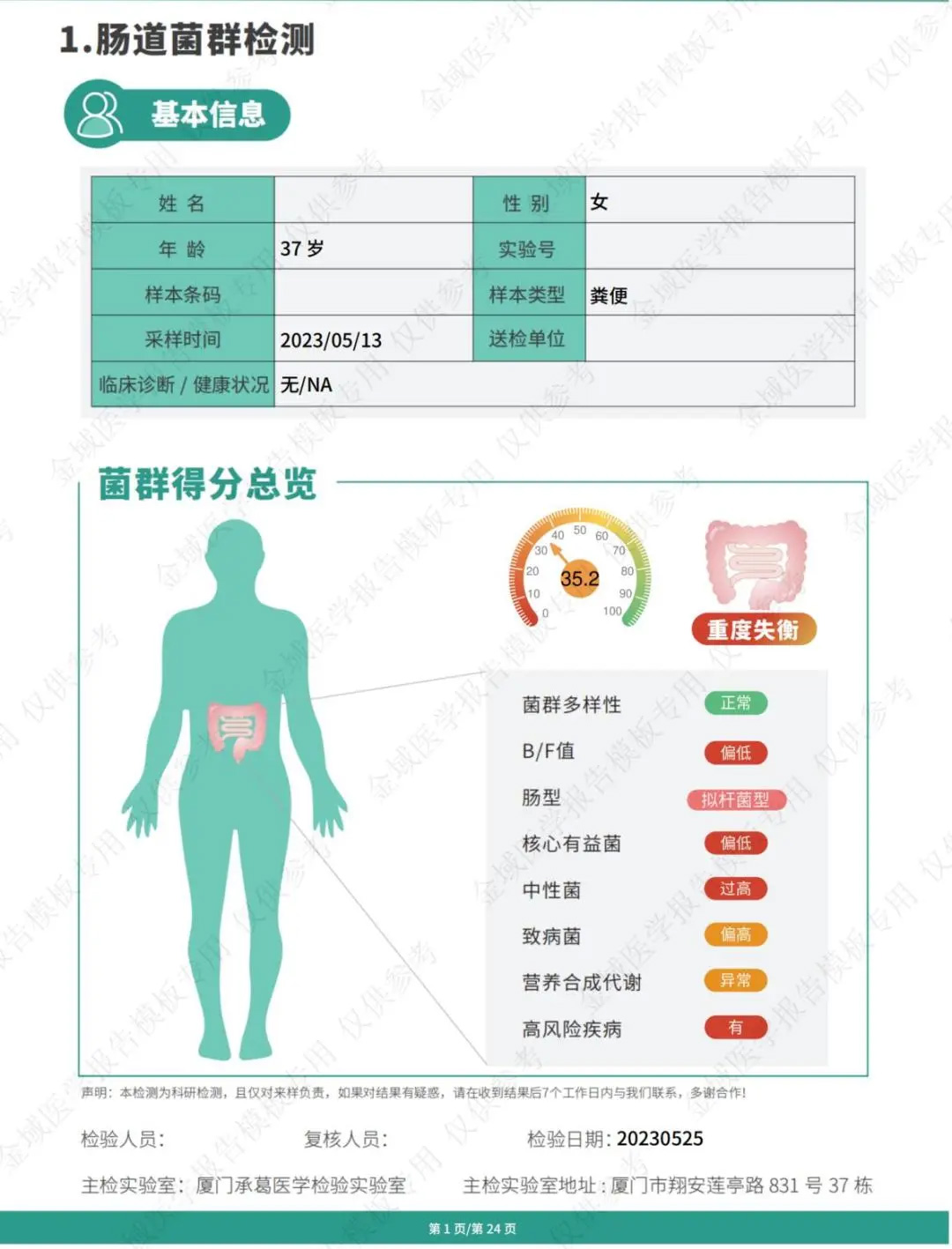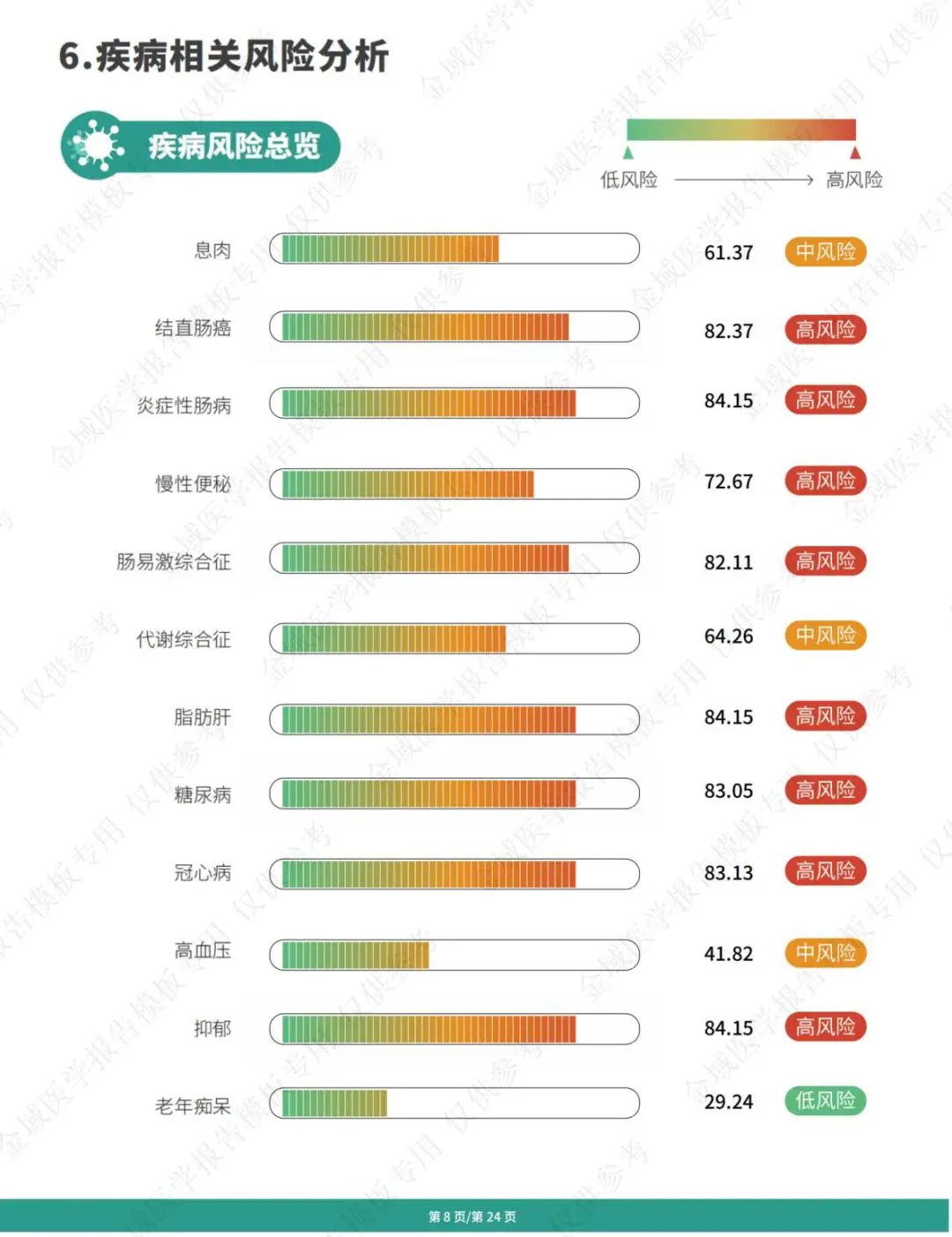
Keyword search
How does gut microbiota affect our overall health after testing for 12 disease risks at once
There is a "sticking point" in the academic class: "In case of uncertainty, quantum mechanics; unknown mechanism, intestinal flora." The second half of the sentence refers to that in recent years, more and more studies have found that intestinal flora not only participates in our "eating, drinking and salsa", but also participates in our immunity and metabolism, affecting the overall health, and is associated with many diseases that seem to be "out of the box", including but not limited to: diabetes, coronary heart disease, hypertension, depression and Alzheimer's disease.
Therefore, understanding the health status of our gut microbiota can help us better evaluate our health status and disease risks, and enable timely intervention and treatment.
How does gut microbiota affect our health?
The number of microorganisms in the human gut exceeds 1000, which is more than the number of cells in the human body. Different diets, lifestyle habits, and living environments can all affect the composition of gut microbiota.
Under normal circumstances, the gut microbiota maintains a balanced state. The imbalance of gut microbiota can directly affect the health of the digestive tract, leading to problems such as diarrhea, bloating, and abdominal pain.
The gut microbiota is also associated with various diseases outside the intestine. The following are some diseases that may be related to the gut microbiota, ranging from mental illnesses such as anxiety and depression to cardiovascular diseases, involving many different parts——

There are currently multiple theories regarding the mechanism of action of gut microbiota on other systemic diseases. For example, in the field of neurological diseases, gut microbiota may affect neurotransmitter metabolism and neuroinflammatory response through the gut brain axis, and have potential connections with depression diagnosis, loneliness diagnosis (autism diagnosis), and other diseases.
For individuals, if they can understand the health status of their gut microbiota, they can adjust their diet, lifestyle habits, and treat diseases personalized under the guidance of a doctor.
Especially for patients over 2 years old with gastrointestinal diseases, chronic patients, immunocompromised individuals, and sub healthy individuals, we recommend conducting a gut microbiota test.
What are the items for testing gut microbiota?
At Shenzhen New Frontier United Family Hospital, we use 16 S rDNA High throughput sequencing technology allows for comprehensive testing of gut microbiota and detailed reports, as well as medical and health recommendations, with just one stool test.
Overall evaluation of microbial community
The testing items include microbial diversity B/F Value, intestinal type, core beneficial bacteria, neutral bacteria, pathogenic bacteria, nutritional synthesis metabolism, and other aspects.
Our hospital will give a gut microbiota score based on the above testing items. The higher the score, the healthier it is. A lower score may indicate an imbalance in gut microbiota, which can help patients understand their own situation intuitively.

Non real patient report, for reference only
Risk analysis of 12 diseases
There are connections between different diseases and certain specific bacterial species in the intestine, such as colorectal cancer, which may be associated with Clostridium, Bacteroides fragilis, Porphyromonas, and Klebsiella. By detecting the relevant microbial communities, the risk of disease can be evaluated.
At present, the intestinal flora test report of our hospital can provide risk analysis of 12 diseases, including polyps, colorectal cancer, inflammatory bowel disease, chronic constipation, irritable bowel syndrome, fatty liver, diabetes, metabolic syndrome, coronary heart disease, hypertension, depression and senile dementia.

Shenzhen New Frontier United Family Hospital provides a package service for intestinal microbiota examination
Project Content
1. Internal Medicine or Psychologist 1 v1 Consultation;
2. Gut microbiota 16 S rDNA High throughput sequencing.
For the crowd
Patients over 2 years old with gastrointestinal diseases, chronic patients, immunocompromised individuals, and sub healthy individuals.
What should I do if abnormal gut microbiota testing is found?
At our hospital, after completing the gut microbiota testing, the attending physician and multidisciplinary medical team will provide detailed interpretation of the report to the client and provide professional medical and health advice.
If abnormal gut microbiota is found, the attending physician can provide personalized dietary recommendations based on the customer's test results, dietary preferences, and other factors. Provide recommendations and prescriptions for the use of microbial ecological regulators (including probiotics, prebiotics, synbiotics, etc.). At the same time, our hospital can provide microbial ecological regulators with drug names, and the product quality is trustworthy.

For individuals who meet the criteria for diagnosis, intestinal microbiota transplantation (FMT) may also be considered.
FMT It is the transplantation of functional gut microbiota from specific healthy human feces into the patient's intestine, reshaping the imbalanced gut microbiota and achieving the treatment of intestinal and extraintestinal diseases. Our hospital currently also provides this treatment.
reference material:
[1] https://www.sciencedirect.com/topics/biochemistry-genetics-and-molecular-biology/intestine-flora
[2]Afzaal M, Saeed F, Shah YA, Hussain M, Rabail R, Socol CT, Hassoun A, Pateiro M, Lorenzo JM, Rusu AV, Aadil RM. Human gut microbiota in health and disease: Unveiling the relationship [J]. Frontiers in Microbiology, 2022, 13: 999001. doi:10.3389/fmicb.2022.999001











